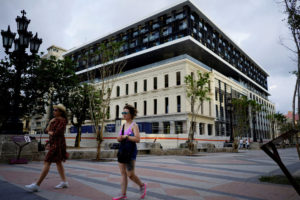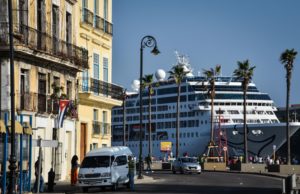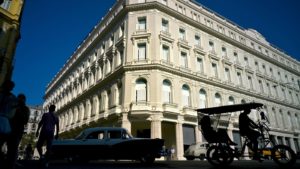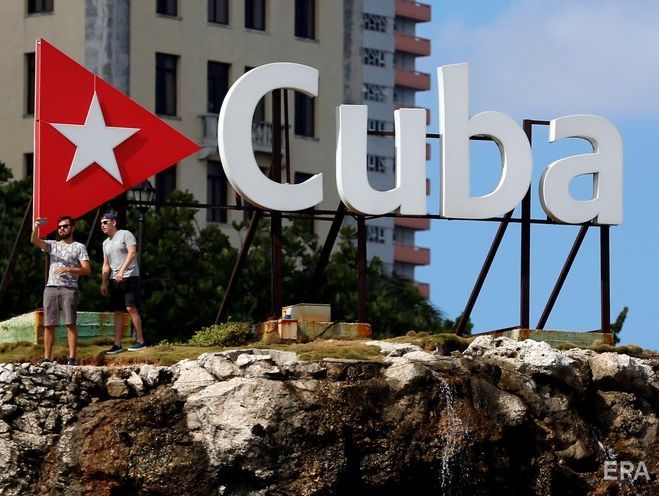 UNITED STATES ADDS NEW COMPANIES AND HOTELS TO THE LIST OF SANCTIONS IN CUBA.
UNITED STATES ADDS NEW COMPANIES AND HOTELS TO THE LIST OF SANCTIONS IN CUBA.
The United States today added twenty-six other companies from Cuba, including sixteen hotels, to its list of companies with which the Americans are prohibited from negotiating, a resurgence of its hard line towards the island that Washington has justified for the alleged Cuban role in the crisis from Venezuela.
In a statement, the Department of State informed of the update of the list, whose changes will take effect tomorrow.
John Bolton, national security adviser to US President Donald Trump, announced on November 1 that the State Department would add more companies to the list.
“The oppression of the Venezuelan regime is possible thanks to the support of the Cuban dictatorship,” denounced Bolton at a speech in Miami, in which he described Cuba, Venezuela and Nicaragua as a “troika of tyranny” that must be fought with firm hand.
The list was created following the order Trump issued in June 2017 to prohibit transactions with companies controlled by Cuba’s military, intelligence and security services, a restriction exempted from US cruise lines and airlines.
So far, the list affected 180 entities, including the Army’s business conglomerate, the S.A. Business Administration Group. (GAESA), which is estimated to control around two thirds of the island’s retail trade; and the tourism group that depends on that institution, Gaviota.
The sixteen hotels now sanctioned are related to Gaviota, which controls about half of the rooms in tourist establishments in Cuba.
Among them there are two managed by the Spanish company Iberostar, the “Grand Packard Hotel” recently opened in Havana and the “Bella Vista” in Varadero, and several located in the keys of Villa Clara, in addition to an establishment that has not even opened even its doors: the SO / “Havana Paseo del Prado”, in the capital.
The sanctions also concern the Telecommunications Services to the Defense Bodies (SERTOD) and another institution related to the Army, the Certification and Security and Protection Consulting Agency (ACERPROT).
Americans who visit the island will not be able to make purchases in seven shopping centers or “plazas” subject to sanctions in places like Cayo de Santa María or Cayo Coco.
The State Department warned today that it will continue to “periodically update” the list. His announcement today is the most notable restriction to the opening process since the measures ordered by Trump in his speech in June 2017.
The former deputy adviser to national security of Barack Obama, Ben Rhodes, today regretted the measure in a tweet, in which he said that “there is no reason to believe that these sanctions will change the Cuban government” and described Trump’s policy as “twisted and stupid.”
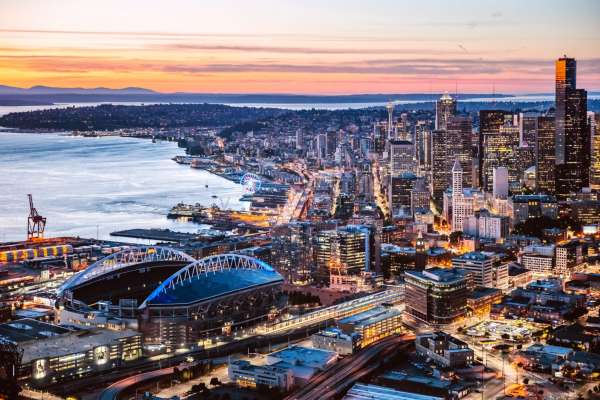 UNITED STATES AÑADE NUEVAS COMPAÑÍAS Y HOTELES A LISTA DE SANCIONADOS EN CUBA.
UNITED STATES AÑADE NUEVAS COMPAÑÍAS Y HOTELES A LISTA DE SANCIONADOS EN CUBA.
Estados Unidos añadió hoy veintiséis compañías más de Cuba, entre ellas dieciséis hoteles, a su lista de empresas con las que los estadounidenses tienen prohibido negociar, un recrudecimiento de su línea dura hacia la isla que Washington ha justificado por el presunto papel cubano en la crisis de Venezuela.
En un comunicado, el Departamento de Estado informó de la actualización de la lista, cuyos cambios entrarán en vigor mañana.
John Bolton, asesor de seguridad nacional del presidente estadounidense, Donald Trump, adelantó el 1 de noviembre que el Departamento de Estado agregaría más empresas a la lista.
“La opresión del régimen venezolano es posible gracias al apoyo de la dictadura cubana”, denunció Bolton entonces en un discurso en Miami, en el que describió a Cuba, Venezuela y Nicaragua como una “troika de tiranía” a la que hay que combatir con mano dura.
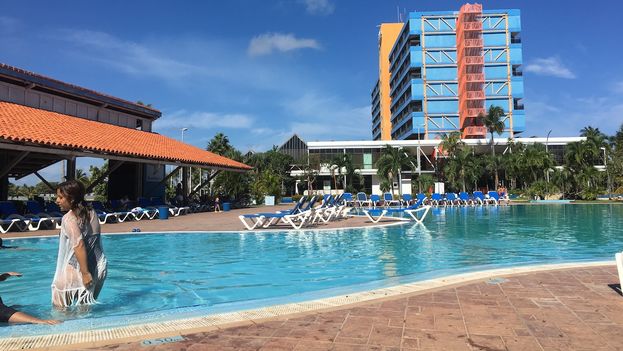
Los 16 hoteles recién sancionados tienen relación con Gaviota, que controla alrededor de la mitad de las habitaciones en establecimientos turísticos de Cuba. (14ymedio)
La lista se creó a raíz de la orden que Trump emitió en junio de 2017 para prohibir las transacciones con empresas controladas por los servicios militares, de inteligencia y de seguridad de Cuba, una restricción de la que se eximía a los cruceros y las aerolíneas estadounidenses.
Hasta ahora, el listado afectaba a 180 entidades, entre ellas el conglomerado empresarial del Ejército, el Grupo de Administración Empresarial S.A. (GAESA), que se calcula que controla alrededor de dos tercios del comercio minorista de la isla; y el grupo de turismo que depende de esa institución, Gaviota.
Los dieciséis hoteles ahora sancionados tienen relación con Gaviota, que controla alrededor de la mitad de las habitaciones en establecimientos turísticos de Cuba.
Entre ellos hay dos administrados por la compañía española Iberostar, el “Grand Packard Hotel” recién inaugurado en La Habana y el “Bella Vista” en Varadero, y varios ubicados en los cayos de Villa Clara, además de un establecimiento que ni siquiera ha abierto aún sus puertas: el SO/ “Havana Paseo del Prado”, en la capital.
Las sanciones también conciernen a los Servicios de Telecomunicaciones a los Órganos de la Defensa (SERTOD) y a otra institución relacionada con el Ejército, la Agencia de Certificación y Consultoría de Seguridad y Protección (ACERPROT).
Los estadounidenses que visiten la isla tampoco podrán hacer compras en siete centros comerciales o “plazas” sujetos a las sanciones en lugares como Cayo de Santa María o Cayo Coco.
El Departamento de Estado advirtió hoy de que seguirá “actualizando periódicamente” la lista. Su anuncio de hoy supone la restricción más notable al proceso de apertura desde las medidas que ordenó Trump en su discurso de junio de 2017.
El que fuera asesor adjunto de seguridad nacional de Barack Obama, Ben Rhodes, lamentó hoy la medida en un tuit, en el que aseguró que “no hay ninguna razón para creer que estas sanciones cambiarán al Gobierno cubano” y describió la política de Trump como “retorcida y estúpida”.
Agencies/ EFE/ ElDiario/ Internet Photos/ Arnoldo Varona/ www.theCubanHistory.com
THE CUBAN HISTORY, HOLLYWOOD.



